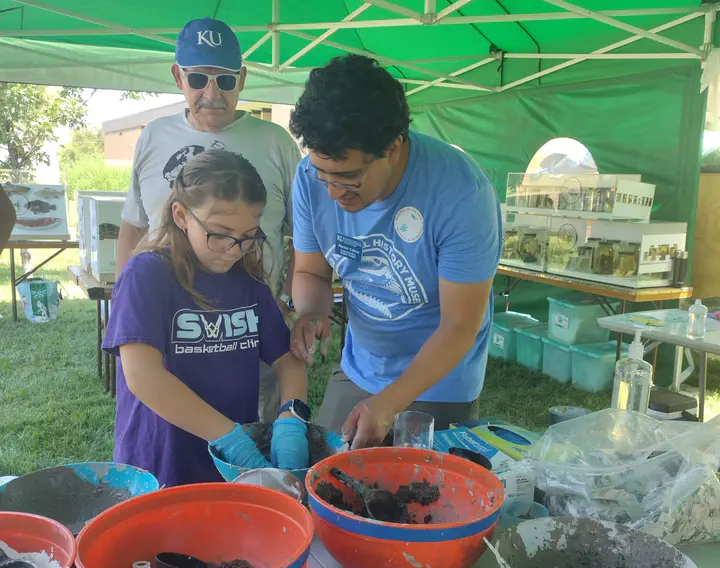Science Engagement
More than Broader Impacts
 Microbes on the move
Microbes on the moveI believe that bridging the gap between scientific research and the wider community is essential. Through my work and well thought communication strategies, I aim to ignite curiosity and foster a deeper appreciation for science among people of all ages. Whether it is sharing my research findings with a broader audience, participating in outreach programs, or mentoring aspiring young scientists, I see science engagement as a two-way street. It not only enriches the public’s understanding of the world but also enriches my own perspective, reminding me of the real-world impact and importance of research. Although my experience in this area is limited, I am committed to improvement in order to inspire others to join me in the thrilling pursuit of knowledge and discovery.
Engagement activities
Outreach (Broader Impacts): Ticks in Kansas: Where and when to find them. Activities: Science engagement activity for adult citizens at the University of Kansas Field Station; Topic: Kansas ticks, their distribution, phenology, and associated pathogens. Scope: A presentation and meeting with Kansas citizens. Biodiversity Institute and KU Field Station, University of Kansas. Kansas, USA. April, 2024.
Outreach (Broader Impacts): Microbes on the move. Activities: Review of Spanish translations of existing outreach materials; Spanish translations of social media posts; general outreach activities in places visited. Scope: Three cities in the state of Kansas. Biodiversity Institute, University of Kansas. Kansas, USA. July, 2022.
Environmental education program: Battery disposal awareness campaign. Activities: Design of content and teaching materials for primary schools; Presentation of contents and educational activities in primary schools with the involvement of teachers and students. Scope: Ten rural schools. El Guismi DAG. Zamora Chinchipe, Ecuador. 2012-2013.
Environmental education program: Plastic bottle recycling campaign. Activities: Design of content and teaching materials for primary schools; Presentation of contents and educational activities in primary schools with the involvement of authorities, teachers, and students. Design of mechanisms to collect, store, and recycle collected materials. Scope: Ten rural schools. El Guismi DAG. Zamora Chinchipe, Ecuador. 2012-2013.